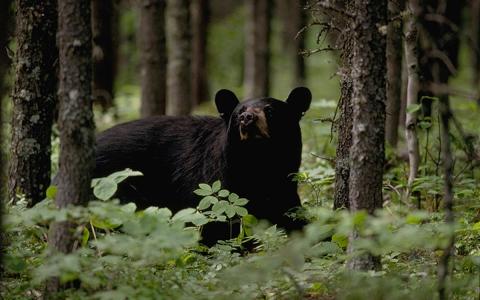Ontario’s Bear and Moose Hunts in High Demand
As Ontario’s Ministry of Natural Resources and Forestry (MNRF) works through some tribulations over what moose and bear population numbers really are, the demand for these two big game species is at an all-time high.
In 2014, Ontario saw the return of a spring bear hunt as a two-year pilot project for resident hunters only. This pilot was to address concerns raised by Northern Ontario residents regarding human-bear conflicts since the spring bear hunt cancellation in 1999. The fall hunt would continue to be offered. The problem with only including resident hunters was that non-residents have traditionally outnumbered resident hunters for this species.
Nature & Outdoor Tourism Ontario (NOTO) successfully advocated that the outfitting community was being left out from participating in the spring hunt pilot as their predominantly non-resident guests were unable to participate. In 2016 the pilot project was extended for 5 years (ends 2020) and now includes non-resident hunters.
To the surprise of the outfitting community, the harvest allocation for the outfitters did not increase with the addition of the spring hunting season and in some cases were reduced which left many in the outfitting and hunting community scratching their heads. Outfitters want to support a spring bear hunt but with these restrictions it is a difficult transition from a business perspective.
A resident of Ontario can purchase a bear hunting license to harvest one bear per year and in some wildlife management units (WMU) obtain a second opportunity. There is no cap on how many resident bear licenses can be sold and those hunters can hunt in any of the WMUs where bear can be harvested. On the other hand, the outfitting industry does have location and harvest restrictions. MNRF must make changes to resident bear hunt licensing if bear populations are to be managed properly.
Currently MNRF is collecting bear hair trap samples to assess bear populations across the province. The last known data collected was between 2007 and 2009. Those numbers are currently being used to determine allocations to the tourism industry. We are eager to see what the results of these new samples will reveal.
A recent study was conducted by MNRF as part of the review of the pilot that showed the economic value of a spring bear hunt in Ontario. With the increased participation from hunters, both resident and non-resident, the lower numbers of human-bear encounters and the health of the bear population, we are optimistic that the spring hunt will be fully reinstated once the pilot ends. We will continue working closely with government to ensure modifications are made to the regulations that will support a healthy bear population for generations to come.
As the five-year pilot continues, resident bear hunt license sales has tripled. Much of this increase can be attributed to the decrease in moose hunting opportunities in Ontario over the last 7 years. MNRF has indicated that our moose population has decreased substantially and are looking at solutions to counteract this decrease.
So far, the focus has been on hunter activities to take pressure off the moose herd. While the majority in the hunting community have been very supportive of modifying the moose hunt regulations, many have questioned the specific changes that have been made to the seasons and tag allocations between bull and cow moose. We continue to press government to look at other sources of impact like predation, forestry, climate change, and disease and to look at other jurisdictions who may have best practices to share.
With the reduction in moose tags available to both resident and non-resident hunters the demands have become very high for the remaining opportunities. Many outfitters are booking 2 to 3 years in advance and could book much further into the future however, allocations are only provided to them one year in advance. Outfitters are having to manage expectations of guests regularly with no control over the outcomes of the allocation process.
As we work through the intricacies of a bear and moose management in Ontario, our outfitting community wishes to thank all their guests for their continued support and we wish to thank our outfitters for their input and insight throughout this process. They are a resilient group of people and we are honored to work with them.–Laurie Marcil


